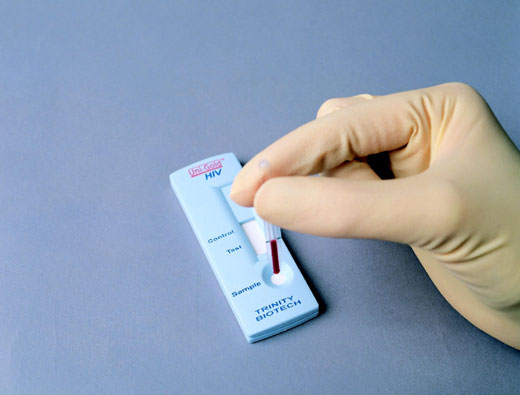| INFORMATION: Free information is available from DEMAND SOLUTIONS on the subject in this story. Click here to request a copy |
Trinity Biotech, a global company based in Ireland, has been developing and selling medical testing kits and supplies since 1992 gradually expanding its operations to encompass sales in 80 countries, both directly and through distributors. If you want to check for Legionnaire's Disease (which affects 18,000 people a year in the US and 10,000 in Europe) or HIV, Trinity Biotech has diagnostic kits that use its proprietary technology to detect illness within minutes.

A public company listed on NASDAQ, Trinity Biotech makes test kits that are used in the clinical laboratory and point-of-care segments of the diagnostic market to detect infectious diseases, sexually transmitted diseases, blood coagulation and autoimmune disorders. The company also sells raw materials to the life sciences industry.
Growth
With annual sales of $126 million, the company has been growing both organically and through acquisition. It has manufacturing plants in Ireland and the US, and sells in more than 80 countries through a combination of direct sales in the US, UK, France and Germany, which account for 60 per cent of the world's diagnostics market and through distributors in the rest of the world. The company says its market is growing because of an aging population and increasing demand for test kits that can deliver results promptly in a clinical environment.
Since the active ingredients in many diagnostic test kits do not last more than a year, obsolescence is a key issue in its inventory management. In addition, demand for its kits can vary by season for flu test kits in the Northern and Southern Hemispheres and for illnesses that crop up in summer, such as Lyme disease. The company implemented Demand Solutions in 2006 in Ireland, UK, and US major markets.
ROI targets exceeded
The results have been dramatic. "In the first 3 months of operation we were able to remove $3 million from the manufacturing pipeline based on the global inventory view that Demand Solutions delivered," said Mark Gregory, Trinity Biotech 's CIO and project executive. "Reagent inventories have been reduced by 40 per cent, product obsolescence reduced by 80 per cent and customer service levels increased, exceeding ROI targets set out at the start of the project."
Gregory continued: "With a view of our global inventories combined with improvement in the accuracy of our sales forecasts, we have been able to reduce our manufacturing/supply plans without negatively impacting customer service levels. By avoiding initial manufacture, we have avoided the cost of production, the cost of inventory, the cost of temperature-controlled storage, and the cost of scrapping out-of date test kits. It has been a highly successful project for us."
More visibility and control
Trinity has developed a monthly planning process during which it looks at sales, stock on hand, and the requirements from its distribution centres. "Before we installed Demand Solutions, the distribution centres just placed a purchase order and if the stock was available they got it," explained Gregory. "Now we have a lot more visibility and control and we manufacture based on their sales forecasts, net of local inventory. If they have a high forecast and are not using their stock, we ask why."
The forecasts are reviewed by the product managers for each line, and those managers talk to sales to check on requirements and changes in demand that might be caused by a big tender or a lost account. That information goes into Demand Solutions Feedback and then in DS Forecast Management for the global demand manager to review.
Harmonisation
Large distributors who depend on Trinity Biotech for a substantial part of their sales are also feeding numbers into the forecasting. Trinity completed its implementation of Demand Solutions within just 20 days with the assistance of Demand Solutions consultants. "As we had already harmonised our ERP systems in the group the project implementation was very straightforward," explained Gregory. "The biggest challenge was cleaning up our products databases to ensure product code harmonisation." And the next stage? The company intends to extend the use of Demand Solutions to bring further products into the forecasting and replenishment planning process.

Add a Comment
No messages on this article yet